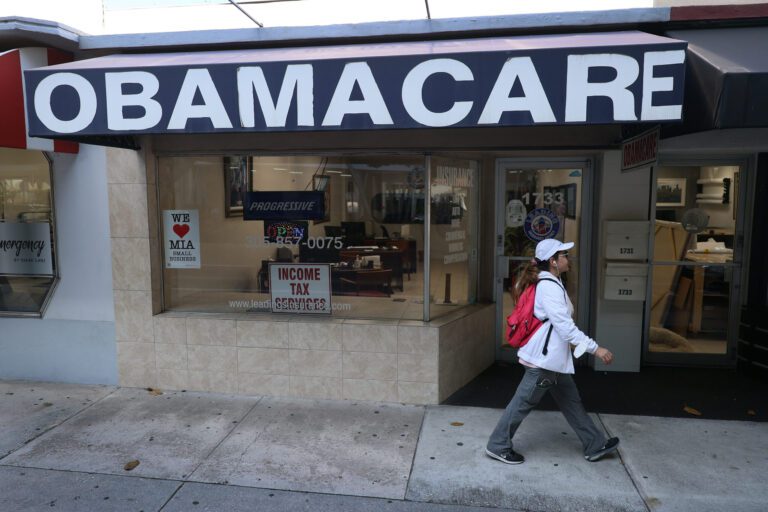Understanding the Federal Government Shutdown: A Deep Dive into Health Insurance Subsidies
Both Democrats and Republicans are exchanging heated statements regarding the recent federal government shutdown, with many arguments containing elements that are misleading or outright false. At the heart of this impasse are critical discussions surrounding the future of health insurance subsidies that impact millions of Americans.
What’s the Core Issue?
While the Democrats aim to restore around $1 trillion in Medicaid cuts mandated by the “Big Beautiful Bill” signed by President Trump, the pivotal point centers on the Affordable Care Act (ACA), commonly known as Obamacare.
The Stakes for Millions
The ongoing partisan battle heavily revolves around the expiration of crucial health insurance subsidies. This uncertainty threatens coverage for over 20 million Americans, forcing both parties into a strategic standoff.
- Democrats are pushing for the renewal of enhanced tax credits under the ACA as a precondition for any agreement on government funding.
- Republicans, however, are split on how to approach the funding extension. Some align themselves with Democrats, while others take a firmer stance against any form of subsidy renewal.
The Case for Extending Subsidies
Why Subsidies Matter
The tax credits designed to assist millions of Americans in affording health insurance through platforms like Healthcare.gov were significantly broadened in 2021 amidst the COVID-19 pandemic. These enhancements led to a remarkable increase in enrollment, effectively doubling nationwide coverage.
- Consequences of Non-Renewal: If no action is taken, many consumers could face insurance premium increases exceeding 100%. Analysis from KFF suggests that approximately 2 million more Americans could struggle to afford healthcare next year if these subsidies lapse.
Urgency of Action
With the open enrollment period for ACA plans starting on November 1, Democrats argue that immediate legislative action is essential. This urgency hinges on the fear that prospective enrollees will be discouraged by soaring premiums and ultimately forgo coverage entirely.
The Republican Split: A Complex Situation
Republicans are not unified in their viewpoint towards extending subsidies. Many have historically opposed Obamacare and are reluctant to allocate funds for continued subsidies, estimated to cost $350 billion over a decade.
Divergent Opinions
- Skeptics argue that extending subsidies merely defers the fundamental issues facing America’s healthcare system. They contend that this approach shifts costs to the federal government rather than providing a long-term solution.
- Emerging Support: Interestingly, a growing faction of Republicans, particularly those in competitive districts, are advocating for an extension, with ten House Republicans proposing a one-year extension.
Voices from Within the Party
Even some staunch conservatives are altering their tunes. For instance, Congresswoman Marjorie Taylor Greene expressed skepticism about allowing premium prices to double for her constituents, stating:
"I’m going to go against everyone on this issue because, when the tax credits expire this year, my own adult children’s insurance premiums for 2026 are going to DOUBLE."
The Argument Against Renewing Subsidies
While proponents argue for an extension, critics present alternative viewpoints. Some claim the urgency surrounding the expiration of enhanced subsidies conflates total premium costs with out-of-pocket expenses.
Clarity on Premium Costs
- The foundational subsidies established by the ACA remain intact, meaning not all financial aspects are as dire as portrayed. Specifically, the enhanced subsidies put in place during the pandemic are what face expiration.
Misinterpretations Highlighted
Critics like Greene reference alarming projections showing that average premiums could potentially spike by 114%; however, this reflects merely the increased out-of-pocket costs, not the total premium amounts. A detailed review from KFF revealed that even without enhanced subsidies, a substantial portion of premiums continues to be subsidized by federal taxpayers, dropping from 88% to 78% but remaining significant nonetheless.
A Broader Critique on Subsidies
Organizations like the Cato Institute argue against the extension of enhanced ACA subsidies, suggesting:
- The program can foster fraud and support wealthy taxpayers who don’t require financial assistance.
- Forcing a dependency on these temporary measures prevents genuine market solutions.
The Wall Street Journal echoes these concerns, arguing that continuing these subsidies is fiscally irresponsible and detrimental to consumers.
Conclusion: The Implications of the Shutdown
As the government shutdown unfolds, the debate over health insurance subsidies raises crucial questions about the balance between immediate economic relief and long-term sustainability in American healthcare. The outcome will significantly influence decisions for millions of Americans regarding their health insurance coverage.
For ongoing updates and insights into this developing story and its implications for healthcare policy, visit authoritative resources such as KFF or explore detailed analyses on Healthcare.gov.


